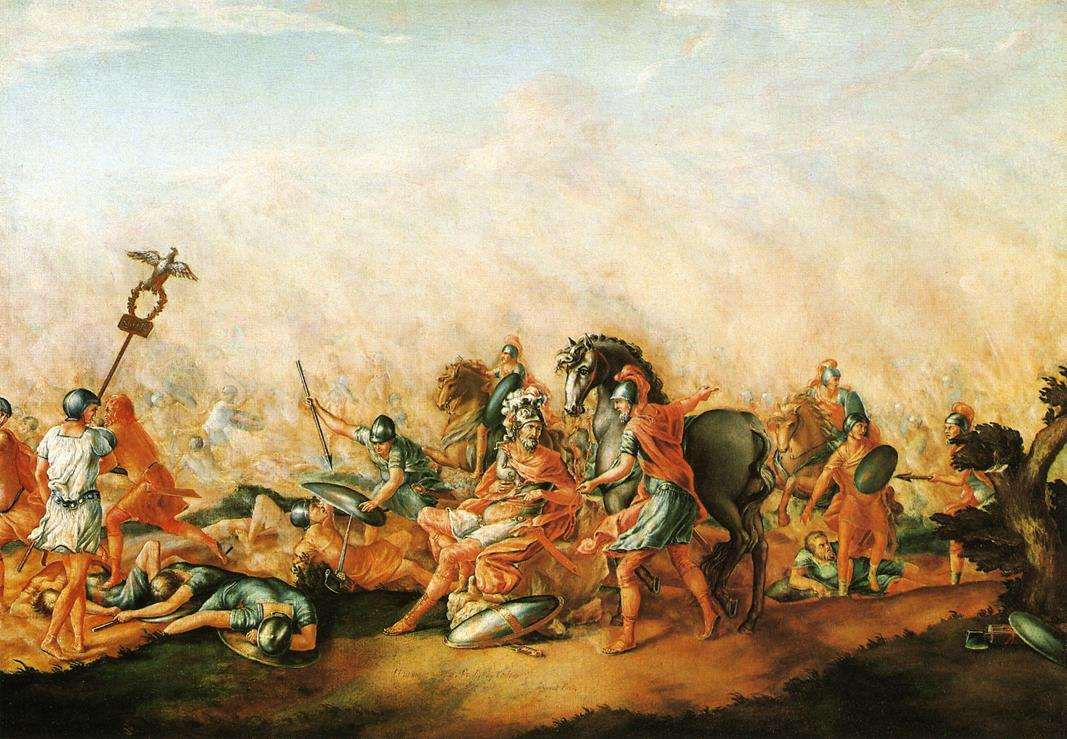 |
| The Death of Paulus Aemilius at Cannae by John Trumbull, 1773 |
What both of these locations had in common was that they were Greek, and would have recognized this music. The Seikilos epitaph is an inscription from a tombstone outside the ancient Greek city of Ephesus. While it may be the oldest musical inscription for which we have both the musical score and the lyrics, this is not entirely clear.
What is clear is that this musical style would have been familiar to both Philip of Macedon and many of the combatants at Cannae. The lyrics are an epitaph from a man named Seikilos to his wife Euterpe. They translate roughly as:
While you live, shineGood words to live by, infused with the still robust stoic philosophy so prevalent in the ancient Greek world.
Don't suffer anything at all;
Life exists only a short while
And time demands its toll.
Interesting music, I've never heard that style before!
ReplyDeleteSunday music class is back!!! Yay!!
ReplyDeleteLibertyman, I was thinking about you when I posted this. ;-)
ReplyDeleteInteresting. And Medieval in sound. Or, rather, I've heard Medieval music that sounds like this.
ReplyDeleteInteresting. And Medieval in sound. Or, rather, I've heard Medieval music that sounds like this.
ReplyDeleteThoroughly enjoyed - thanks for posting!
ReplyDelete